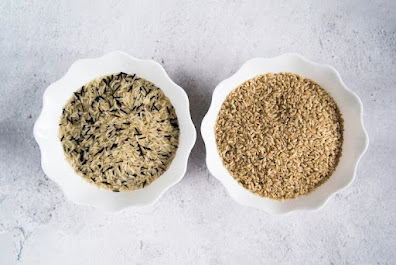Exploring the Culinary Marvels of Poppy Seeds: History, Versatility, and Cultural Reverence
Embark on a flavorful journey as we delve into the captivating realm of poppy seeds, commonly known as khus khus. These tiny seeds, derived from the opium poppy plant (Papaver somniferum), boast a rich heritage spanning millennia and have left an enduring imprint on cuisines across the globe. Join me in unraveling the origins, characteristics, and culinary applications of poppy seeds, discovering their remarkable versatility and profound cultural significance.
Origins and Characteristics:
Poppy seeds, originating from regions stretching from the Mediterranean to Asia, have a storied past dating back thousands of years. Characterized by their unique kidney shape and mild, nutty flavor with subtle floral notes, these seeds are not only esteemed for their culinary appeal but also prized for their nutritional richness. Packed with essential minerals like calcium, magnesium, and phosphorus, along with beneficial fatty acids and antioxidants, poppy seeds offer a valuable addition to a balanced diet.
Culinary Uses:
1. Thickening Agent:
In traditional Indian and Middle Eastern cuisines, poppy seeds are revered for their role as a natural thickener in gravies, soups, and sauces. When finely ground, they impart a creamy texture and subtle flavor, enhancing the depth of various dishes.
2. Baking:
Adding a delightful crunch and nutty aroma, poppy seeds are a favored ingredient in baked goods such as bread, cakes, and pastries. Whether sprinkled atop a freshly baked loaf or incorporated into decadent desserts, they elevate the texture and flavor profile, enhancing the overall sensory experience.
3. Desserts:
Poppy seeds feature prominently in a myriad of desserts across cultures, from creamy rice puddings to indulgent sweets like kheer and baklava. Their delicate crunch and subtle sweetness complement the richness of desserts, captivating taste buds with every bite.
4. Spice Blends:
Ground poppy seeds are a fundamental component of spice blends and masalas, contributing depth and complexity to savory dishes such as curries and stews. Paired with aromatic spices, they create layers of flavor that tantalize the palate.
5. Beverages:
Poppy seeds lend their unique flavor and texture to a variety of beverages, from traditional Indian thandai to modern smoothies and shakes. Whether infused into milk-based drinks or blended into mocktails, they add a creamy consistency and subtle sweetness, enhancing the drinking experience.
6. Nutritional Supplements:
Recognized for their nutritional benefits, poppy seeds are often consumed as a dietary supplement to support overall health and well-being. Rich in essential minerals and antioxidants, they provide vital nutrients for bone health, immune function, and cellular repair.
7. Culinary Garnish:
Whole or ground poppy seeds serve as a decorative garnish, adding visual appeal and texture to dishes like salads and appetizers. Their delightful crunch and aesthetic flourish enhance the presentation of culinary creations.
Cultural Significance:
Beyond their culinary uses, poppy seeds hold deep cultural significance in various traditions and rituals worldwide. In Indian culture, they symbolize fertility, prosperity, and auspicious beginnings, often used in religious ceremonies and weddings to represent purity and abundance.
Conclusion:
In conclusion, poppy seeds emerge as a culinary gem with a rich history and profound cultural symbolism. From their ancient origins to their modern-day applications, these versatile seeds continue to inspire culinary creativity and captivate the senses across cultures. As we celebrate the culinary marvels of poppy seeds, let us cherish their heritage and nourishing properties, savoring the essence of tradition and innovation with every dish.




Comments
Post a Comment